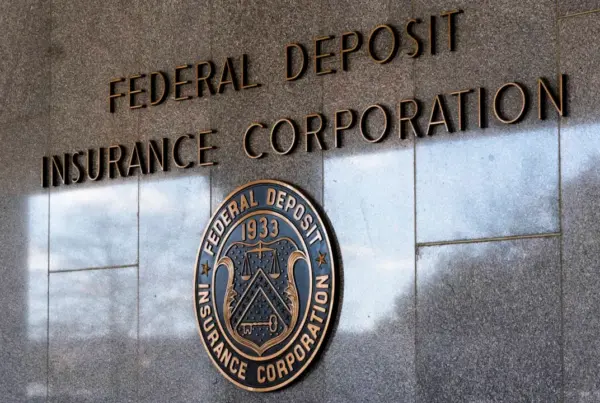# FDIC Proposed Rule on Brokered Deposits: Essential Insights for Financial Institutions
Introduction
On August 23, 2024, the Federal Deposit Insurance Corporation (FDIC) announced a proposed rule aimed at revising regulations concerning brokered deposits. This regulatory update is significant as it seeks to enhance the stability of the banking system by imposing stricter definitions and requirements on deposit brokers. The proposed changes are a response to ongoing concerns regarding the risks associated with brokered deposits, particularly in the context of recent financial instability and the growing influence of fintech companies in the banking sector.
Key Regulatory Changes & Analysis
1. Expansion of the Definition of Deposit Broker
The proposed rule expands the definition of “deposit broker” to encompass a broader range of entities involved in the placement of deposits. This includes:
- Previous Definition: The existing regulation primarily defined a deposit broker as an entity that places deposits with insured depository institutions for a fee.
- New Definition: The proposed rule includes entities that facilitate deposit placement through digital platforms, thereby capturing a wider array of fintech companies.
2. Enhanced Reporting and Compliance Requirements
The proposed rule introduces new compliance obligations for institutions accepting brokered deposits. These include:
- Detailed Reporting: Banks will be required to provide comprehensive disclosures regarding the nature and volume of brokered deposits.
- Liquidity Standards: Enhanced liquidity requirements will be imposed on institutions that heavily rely on brokered deposits, aligning with standards set forth in Section 29 of the FDIA.
3. Impact on Financial Institutions
The regulatory changes will have significant implications for various stakeholders, including:
- Banks: Traditional banks must reassess their deposit strategies and ensure compliance with the new reporting and liquidity requirements.
- Fintech Companies: Digital platforms must evaluate their business models to ensure they do not inadvertently fall under the expanded definition of deposit brokers.
Legal and Industry Implications
The proposed rule presents several legal and operational challenges for affected businesses:
- Compliance Burdens: Financial institutions may incur increased costs related to compliance, including the need for enhanced reporting systems and legal consultations.
- Regulatory Risks: Non-compliance with the new requirements could lead to enforcement actions by the FDIC, as well as potential litigation from affected parties.
- Industry Response: Law firms and financial institutions should proactively assess the implications of these changes and consider strategies to mitigate risks.
Recommended Actions & Compliance Strategies
Affected parties should take the following steps to prepare for the proposed regulatory changes:
- Review Compliance Programs: Institutions should conduct a thorough review of their compliance frameworks to align with the new definitions and requirements.
- Engage Legal Counsel: Consulting with legal experts can help navigate the complexities of the proposed rule and its implications for existing contracts and operational practices.
- Monitor Deadlines: Institutions should stay informed about the timeline for implementation and any upcoming regulatory filings related to brokered deposits.
- Participate in Public Comment Period: Stakeholders are encouraged to submit comments during the public comment period to voice concerns or suggestions regarding the proposed rule.
Conclusion & Next Steps
The FDIC’s proposed rule on brokered deposits represents a significant shift in the regulatory landscape for financial institutions. With a focus on enhancing the stability of the banking system, the proposed changes necessitate immediate attention and action from affected parties.
The timeline for implementation remains uncertain, and additional regulatory developments may arise as the FDIC finalizes its rule. Stakeholders should remain vigilant and prepared for potential legal or legislative challenges that could impact the enforcement of these new regulations. By proactively addressing compliance and operational adjustments, financial institutions can better position themselves in the evolving regulatory environment. For ongoing updates and legal analysis, firms should monitor FDIC announcements and engage in discussions regarding the implications of this proposed rule.


